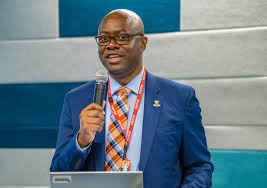
Oyo State Governor, Seyi Makinde, announced that the state is poised to become a major hub for intra-African trade.
In a statement on Sunday by his Special Adviser on Media, Sulaimon Olanrewaju, Governor Makinde shared this vision during the 2024 Prosperity Africa Conference, themed “Driving Trade, Innovation, and Sustainability for Prosperity,” held in Addis Ababa, Ethiopia.
Governor Makinde, represented by his Chief of Staff, Segun Ogunwuyi, emphasized the state’s readiness to embrace the opportunities promised by the African Continental Free Trade Area (AfCFTA).
He highlighted Oyo’s strategic location in Nigeria, its agricultural strength, and its emerging industrial sectors as key factors that position the state to become a critical player in intra-African trade.
Makinde noted that Oyo State, as a sub-national entity, is actively working to leverage AfCFTA to foster growth, innovation, and prosperity. He described AfCFTA not merely as a trade agreement, but as a transformative agenda that has the potential to reshape Africa’s economic landscape.
“Oyo State, with its strategic location in Nigeria’s southwest, its agricultural power, and its growing industrial sectors, has the potential to be a critical player in intra-African trade. We are already working to position ourselves for African trade,” Makinde said.
He acknowledged several challenges, including bureaucratic customs procedures, infrastructure deficits in transportation and logistics, and non-tariff barriers that limit Nigeria and its sub-national entities from fully participating in AfCFTA.
To address these issues, Oyo State has been collaborating with federal authorities to streamline customs processes, reduce infrastructure deficits, and align regulatory frameworks to overcome trade barriers.
Makinde revealed that the state has established a one-stop shop within the state’s Investment and Public-Private Partnership Agency to handle approvals for the smooth movement of goods. This initiative is part of efforts to ensure that trade routes meet AfCFTA standards.
He also highlighted ongoing investments in infrastructure, including upgrading road networks, developing rail links, and boosting energy infrastructure to support the free flow of goods across West Africa.
In addition, the governor announced the creation of a dedicated desk for AfCFTA-related opportunities to help small and medium-sized enterprises (SMEs) access African markets. He stressed that SMEs are the backbone of Oyo’s economy and their inclusion in African trade would drive growth.
Makinde further pointed to the state’s heavy investment in agribusiness development. The rehabilitation of the Fasola Livestock Settlement, renamed the Fasola Agribusiness Industrial Hub, is an example of how Oyo is turning raw agricultural products into high-value exports that meet AfCFTA standards.
This effort is expected to increase the state’s revenue, create jobs, and drive sustainable economic development.
He concluded by noting that Oyo is building frameworks for public-private partnerships to attract investments that will accelerate infrastructure development, particularly in transportation and logistics.
These collaborations with both domestic and foreign investors aim to create an enabling environment for businesses to thrive under AfCFTA.
